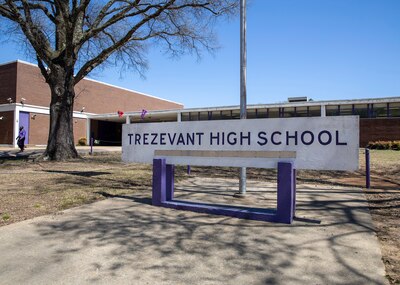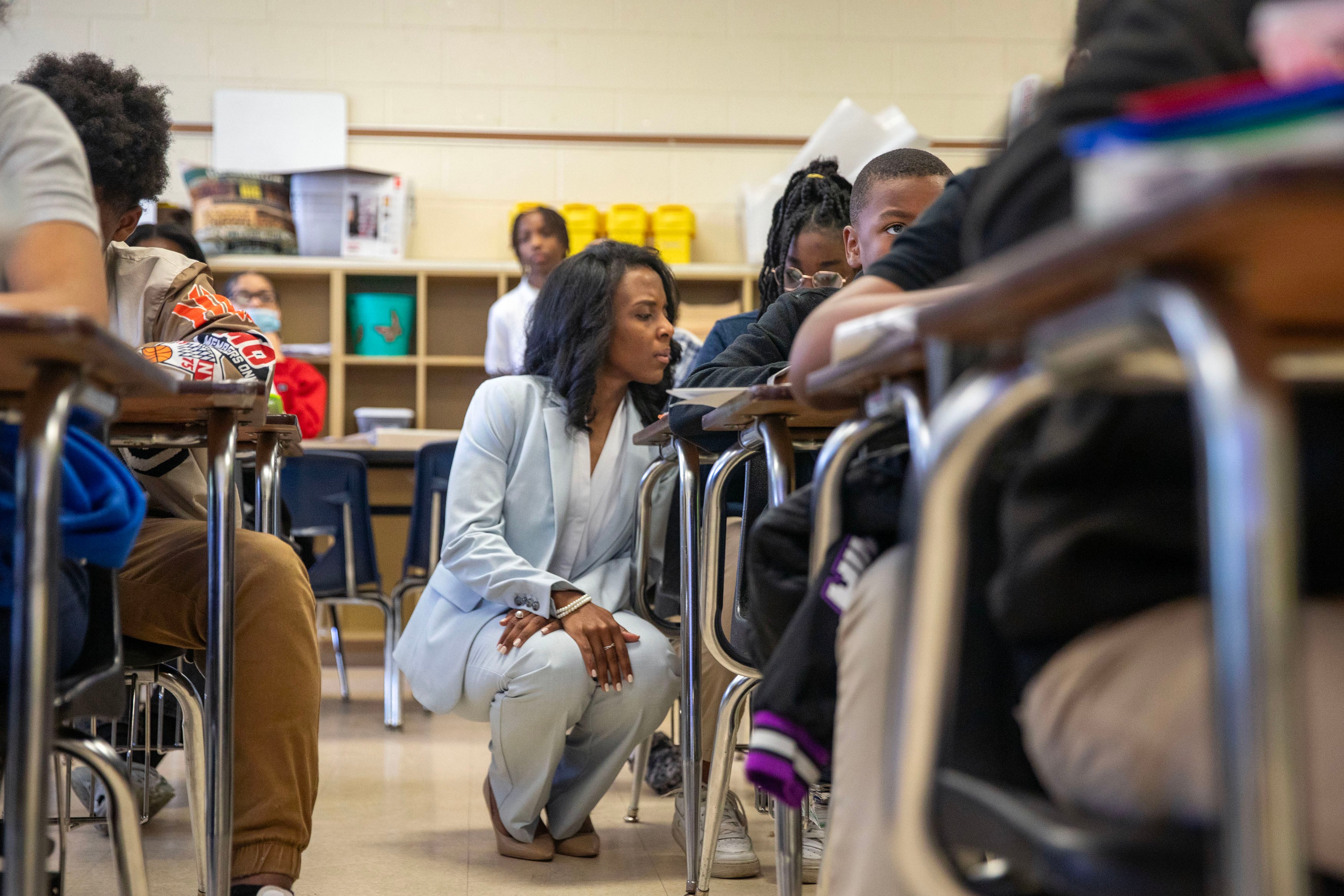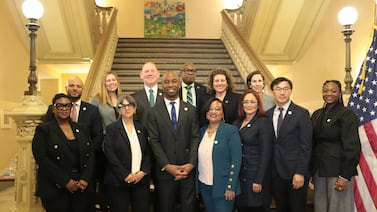Sign up for Chalkbeat Tennessee’s free daily newsletter to keep up with Memphis-Shelby County Schools and statewide education policy.
Memphis-Shelby County Schools is asking the county for more than $200 million in funding for school buildings, both to address maintenance needs at existing schools and to support construction of two new high schools.
The request exceeds even the expanded school buildings budget supported by a county wheel tax increase last year, and it’s not clear how much of it the county can provide. Projected costs for the two new high schools have risen by tens of millions of dollars since county commissioners approved initial funding for them.
Completing construction of the two new high schools would deliver on a promise to Frayser families, plus the communities at three Germantown schools that the state is forcing the district to close.
The request is also aimed at tackling a long backlog of existing facility needs, including new fire alarm systems, roofs, and heating and air upgrades. That list is expected to grow once school officials receive results of an expansive building assessment later this year.
Superintendent Marie Feagins and Chief Financial Officer Tito Langston brought the request to the Shelby County Commission, the group that approves the county funds MSCS receives, on Wednesday. The pending capital request — of which $97 million is for immediate maintenance needs — is a major item in the district’s proposed $1.8 billion budget.
Feagins says existing buildings are the priority
Feagins pushed back on the notion that the district would have to choose between the deferred maintenance projects and the new high schools, but said the existing buildings are the priority. This fiscal year, MSCS dipped into its own fund balance to cover $64 million in building projects after the county committed dollars only to the new high schools.
“We have immediate needs in several buildings, almost 100 buildings, right now,” Feagins told reporters after the presentation.
The district is petitioning others for funding, too, she said, including the City of Memphis, which has not had a funding relationship with the district in years.
“There are multiple ways to move this forward,” Feagins said. “I’m confident that we’ll get it done.”

In his own budget presentation Wednesday, Shelby County Mayor Lee Harris proposed to continue the existing commitment to the new high schools, but said he’d offer an additional funding proposal in December to give county and district officials time to find cost saving options.
“We want to see new schools in more neighborhoods, and the best way to do that is to make sure that you spend appropriately on the first two new schools,” Harris told reporters.
In an interview last week, Commissioner Mick Wright, who chairs the facilities committee, told Chalkbeat that it appeared that the county and district could be at an impasse over the schools, especially given the county’s promises to another construction project, the region’s new trauma hospital.
Wright told Chalkbeat Wednesday that he could see the additional funding for the schools being approved if other county projects don’t move forward as planned.
Commissioner Edmund Ford, Jr. also expressed doubts about meeting the district’s capital funds request, but agreed that schools’ maintenance needs should be met.
“I don’t want to get to the point to where we abandon those students, those existing schools, and then we decide to only look at the two new schools,” Ford said.
Feagins outlines budget cuts, investments
MSCS presented a balanced budget that eliminated a $150 million shortfall through a series of position and program cuts meant to focus resources on initiatives that are working well.
Feagins described her message to staff: “You can have a job. It just may not be the title that you have right now, or the respective department or work location that you’re in.”
In April, Chalkbeat requested updated information about how the proposed job cuts match up against the 675 cuts district officials proposed to board members in November. The district has not responded to the inquiry.
At the same time, MSCS proposed some investments to go along with a new salary increase for teachers, including:
- $4.2 million for attendance specialists, an average cost of $53,000 per school
- $1.5 million toward support personnel at high schools that earned D and F letter grades from the state
- $29.3 million in literacy supports, with a focus on small group instruction, family communication, and low performing schools
Feagins also proposed $1.6 million to expand course offerings at Hope Academy, the school inside Shelby County’s juvenile detention center.
District officials expect to offer a more detailed look at the budget during meetings later in May and June with school board members and county commissioners. Both bodies have to vote to approve the budget before it takes effect in July.
Laura Testino covers Memphis-Shelby County Schools for Chalkbeat Tennessee. Reach Laura at LTestino@chalkbeat.org.






